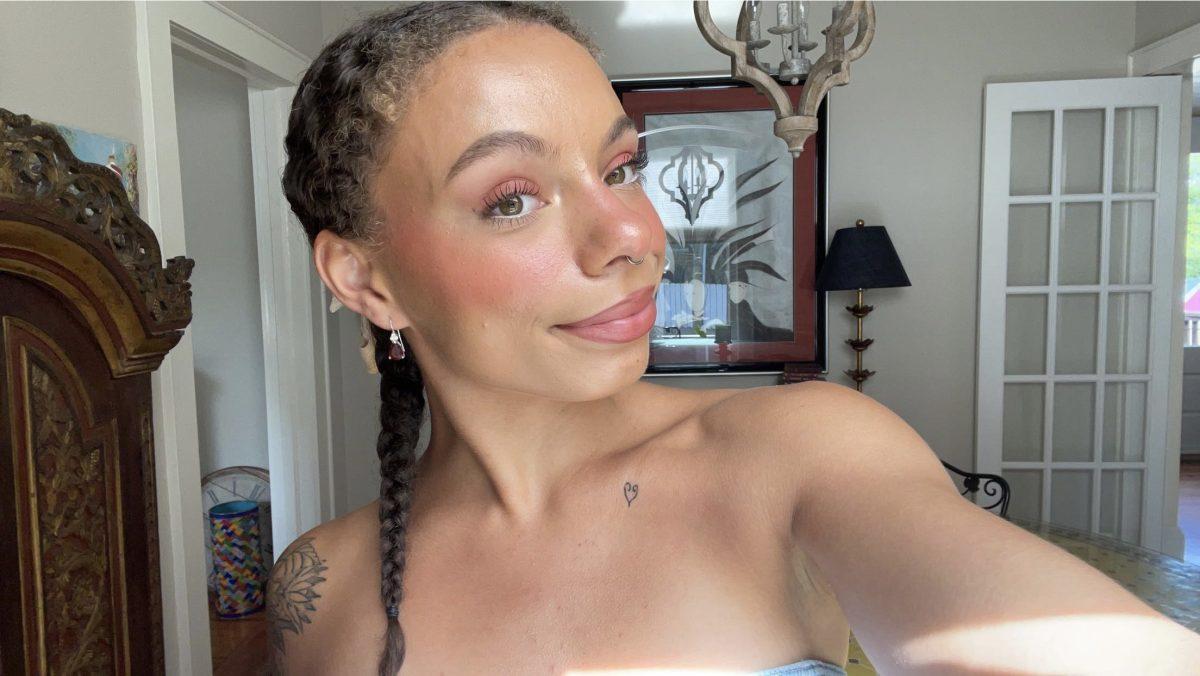Over the past few years that I’ve started buying and wearing makeup, I’ve noticed an undeniable trend: the explosion of new celebrity beauty brands. Fans are naturally drawn to products associated with a famous person they admire, which makes it easy for celebrities to prioritize profits and image over anything else.
From Kylie Jenner’s lip kits in 2015 to Dolly Parton’s fragrance in 2021, it seems as though every public figure and influencer nowadays wants to establish themselves beyond the red carpet. Singers like Ariana Grande, actresses like Millie Bobby Brown, models like Hailey Bieber and even social media influencers are jumping on this bandwagon and partnering with or creating their own beauty brands.
In doing this, people who aren’t passionate about beauty products take opportunities from those who do care about it. It’s also well known that people do their best work and put in the most effort for things they care about. If a celebrity isn’t truly invested in the products they’re creating, they run the risk of creating faulty products for consumers.
This was the case with Kylie Jenner’s skincare line, which has received a lot of bad reviews over the years — particularly for the face wash, which users found to cause rashes and turn brown. Popular skincare influencer Hyram Yarbro was one of many consumers to pass on the brand, which he reviewed in a YouTube video.
Makeup gurus on YouTube who establish their own brands are warranted in their entrepreneurship. Manny Guiterrez, for example, found his fame on YouTube by reviewing popular brands and sharing his passion for makeup with a wide audience. It wasn’t a surprise when he launched Lunar Beauty in 2018, because it relates to how he gained fame and what he cares about. The problem lies with those who are creating brands simply because they want to make money and maintain relevance rather than because they are passionate about it.
When asked about their intentions behind creating a beauty brand, celebrities often give vague answers or ones that could be crafted by any makeup brand founder. For example, on r.e.m. beauty’s website discussing their mission, Ariana Grande writes, “it means so much to me to be able to create a product line for absolutely everybody and anybody who wants to wear it and feel incredible.” She goes on to explain that she wants people to feel even more beautiful in their own skin and providing the tools to do so is a “gift” that she’ll “never take for granted.”
Grande’s r.e.m beauty claims innovativeness and prides itself in such, but besides their interesting looking, space-inspired packaging, the products themselves aren’t that groundbreaking. I’m not saying the products are bad — I’ve used them, and they aren’t — but it does suggest that celebrity beauty brands overvalue image and profit.
This isn’t to say that celebrities never have pure intentions when creating beauty brands. Tennis player Naomi Osaka launched her skincare line Kenlò in 2021 which caters to melanated skin tones and focuses on uplifting women. Many sunscreens are not designed to work for people with darker skin, due to the myth that we can’t burn or get skin cancer, which often results in a white cast on the face. Osaka’s brand, however, acknowledges this inequality and takes action to change it.
Selena Gomez’s Rare Beauty is dedicated to mental health awareness and donated $1.2 million in grants to expand mental health services and resources in educational settings through its nonprofit affiliate, the Rare Impact Fund.
Celebrities who want to appear on this scene can do so without creating brands that take away from consumers and other entrepreneurs. Existing brands like Morphe are well known for their influencer collaborations, such as ones with Charli and Dixie D’amelio and Madison Beer. These collaborations can be profitable for the celebrity without taking advantage of a fanbase.
Certainly makeup brands that aren’t owned by celebrities can be exploitative, but this situation is particularly concerning because it manipulates the trust and faith that fans — which include students like myself — put into these figures.
College students are already struggling to make ends meet. Celebrity brands are often pricey, like Lady Gaga’s Haus Labs and its $40 highlighter. We shouldn’t be in a position of spending money on products that aren’t created with our best interest at heart.
Of course, the simple solution is for us to not make unnecessary purchases, considering these products aren’t necessities. However, this thought process ignores that the bare minimum isn’t the most desirable way to live. People naturally want to make discretionary purchases and support public figures they care about. When celebrities exploit this vulnerability, we have a problem.
If a celebrity wants to create a beauty brand, they should absolutely be free to do that. If a person is famous for singing, that doesn’t mean they can only profit from this alone and can’t discover other passions. However, they shouldn’t be doing so solely because of the financial status and social clout it provides. People want to support them, but not at our own expense.














